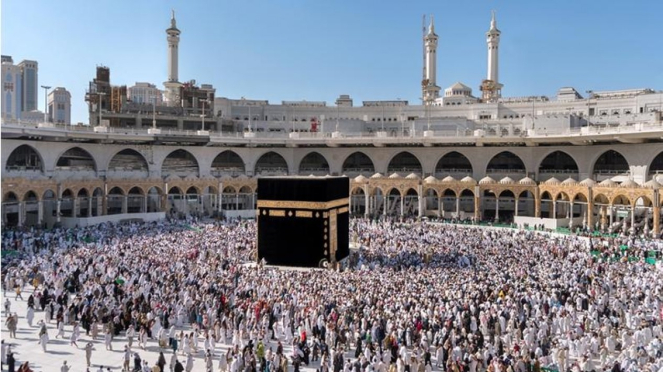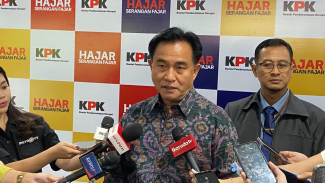Hajj Funds Management Investment Provides Maximum Benefit Value
- Muhammad AR/VIVA.
VIVA – The Hajj Finance Organizing Agency (BPKH) said that the management of Hajj funds was placed on the safest investment in order to provide maximum benefit value and provide support for Hajj financing in Indonesia.
The Head of the BPKH Collection Division, Muhammad Tabrani Nuril Anwar mentioned four principles for managing Hajj funds. These principles are contained in Article 2 of Law Number 34 of 2014 concerning Hajj Financial Management.
Nuril said that the first principle is sharia principles. All BPKH partners must be sharia institutions, both investment partners and deposit-taking banks. In the second principle, BPKH applies the precautionary principle in which all investments carried out by BPKH must prioritize the precautionary principle.
The third principle is that all investments are made for the benefit of the people and prospective pilgrims. Fourth is non-profit. The principle of non-profit investment in BPKH is that all profits are maximized for all prospective pilgrims.
Ilustrasi Jemaah Haji
- vstory
He said the presence of BPKH in managing Hajj finances was a mandate contained in Law 34 of 2014 concerning Hajj Financial Management.
"Wherein Article 22 states that BPKH is in charge of managing Hajj Finance which includes revenue, development, expenditure and accountability for Hajj Finance," said Muhammad Tabrani Nuril Anwar.
In the future, Nuril hopes that the value of the benefits provided to pilgrims will be greater. So, the subsidy component will be further suppressed and the total BPIH charged to pilgrims will be smaller.
On the same occasion, General Chairperson of the Muslim Association for Hajj and Umrah Organizers of the Republic of Indonesia (AMPHURI), Firman M Nur said that Saudi Arabia has experienced high inflation over the past two years so it causes the prices of basic necessities to rise sharply.
"As a result, the standard of service at Arafah Minah has increased greatly. So, there is a difference in the figure of Rp1.5 trillion that the Indonesian government must be able to meet in order to be able to hold the pilgrimage this year," said Firman.
Firman added that Rp1.5 trillion was the cost of organizing a regular hajj. Meanwhile, for special Hajj, the cost is estimated to be much higher.



























